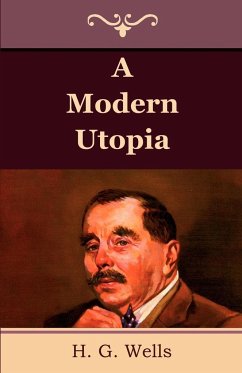A Modern Utopia (1905) is a work of fiction by H. G. Wells. H. G. Wells's proposal for social reform was the formation of a world state, a concept that increasingly occupied him throughout the remainder of his life. One of his earliest and most ambitious attempts at portraying a world state was A Modern Utopia (1905) (McLean). Like most utopians, he indicated a series of modifications which in his opinion would increase the aggregate of human happiness. Basically, Wells' idea of a perfect world would be if everyone were able to live a happy life. This book is written with an intimate knowledge of former ideal commonwealths and is a conscious attempt to describe a utopia that is not utopian. June Deery refers to A Modern Utopia as a work in progress for two obvious reasons: 1) It is about social and technological advance, and 2) Wells stresses that he is describing a dynamic utopia. This means that this modern society requires and allows further improvement. The work was partly inspired by a trip to the Alps Wells made with his friend Graham Wallis, a prominent member of the Fabian Society. A Modern Utopia was intended as a hybrid between fiction and 'philosophical discussion'. Wells began by stating that the people of this utopia have to plan "a flexible common compromise, in which a perpetually novel succession of individualities may converge most effectually upon a comprehensive onward development." That is the first, most generalised difference between a Utopia based upon modern conceptions and all the other Utopian stories that were written previously (Wells, Ch. 1). An important fact about this modern Utopia is that the people's purpose is to be Utopian. Also, the modern Utopia must have people inherently the same as those in the rest of the world. (wikipedia.org)
Bitte wählen Sie Ihr Anliegen aus.
Rechnungen
Retourenschein anfordern
Bestellstatus
Storno









